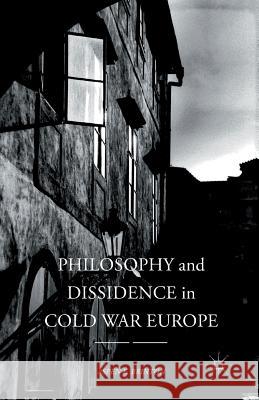Philosophy and Dissidence in Cold War Europe » książka
topmenu
Philosophy and Dissidence in Cold War Europe
ISBN-13: 9781349954117 / Angielski / Miękka / 2018 / 267 str.
Kategorie BISAC:
Wydawca:
Palgrave MacMillan
Język:
Angielski
ISBN-13:
9781349954117
Rok wydania:
2018
Wydanie:
Softcover Repri
Ilość stron:
267
Waga:
0.33 kg
Wymiary:
21.59 x 13.97 x 1.52
Oprawa:
Miękka
Wolumenów:
01
Dodatkowe informacje:
Wydanie ilustrowane











